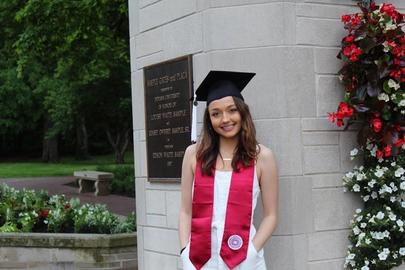- About Us
- Advertise / Support
- Editorial Board
- Contact Us
- CancerNetwork.com
- TargetedOnc.com
- OncLive.com
- OncNursingNews.com
- Terms & Conditions
- Privacy
- Do Not Sell My Information
© 2025 MJH Life Sciences™ and CURE - Oncology & Cancer News for Patients & Caregivers. All rights reserved.
Patients Should Ask Their Providers About Clinical Trial Results

Jamie Cesanek, Assistant Web Editor for CURE®, joined the team in March 2021. She graduated from Indiana University Bloomington, where she studied journalism and minored in sociology and French. In her free time, she enjoys hiking, running, or enjoying time with friends and family. Email her at jcesanek@curetoday.com.
Results demonstrating the efficacy of Bavencio highlight the importance of incorporating recent clinical trial successes into the treatment conversation.
Patients should ask their health care providers about recent clinical trial results when learning about treatment options, says an expert.
In an interview with CURE®, lead author of the phase 3 JAVELIN Bladder 100 trial Dr. Petros Grivas, who is an associate professor and clinical director of the Genitourinary Cancers Program at Seattle Cancer Care Alliance, spoke about what the recently presented data means for patients.
“For example, if I discussed with the patient the option of chemotherapy or checkpoint inhibitor…I say to the patient, ‘If you complete platinum-based chemotherapy, and you have a response or stable disease improvement or stabilization of the cancer and you have no contraindication to immunotherapy, I will offer you the option of maintenance therapy to sustain or maintain the benefit that’s seen with chemotherapy,’” said Grivas.
The results were presented at the 2021 American Society of Clinical Oncology (ASCO) Annual Meeting, demonstrating that patients with advanced urothelial cancer who received Bavencio (avelumab) as a frontline maintenance therapy plus best supportive care had prolonged time to end of next-line treatment, compared to patients who received best supportive care alone.
Transcription:
So I think overall, based on the different data points we have presented of the different angles of the data analysis, I think the important things for the patients are when they have (been) diagnosed with a metastatic disease, they should discuss with their oncology providers and medical oncologist – number one, what are the therapy options, for example, chemotherapy, followed by a volume of maintenance, or checkpoint inhibitors or clinical trials upfront. And I think it's important to have this discussion of the JAVELIN 100 trial upfront when the decision is being made about which therapy the patient should get in the frontline setting. For example, if I discussed with the patient the option of chemotherapy or checkpoint inhibitor, I am discussing also here at my practice in Seattle Cancer Care Alliance, the date of JAVELIN 100. And I say to the patient, “If you complete platinum-based chemotherapy, and you have a response or stable disease improvement or stabilization of the cancer and you have no contraindication to immunotherapy, I will offer you the option of maintenance therapy to sustain or maintain the benefit that’s seen with chemotherapy.” And the data we keep presenting I think add up and reinforce this point from different data point analysis angles.
For more news on cancer updates, research and education, don’t forget to subscribe to CURE®’s newsletters here.
Related Content:



